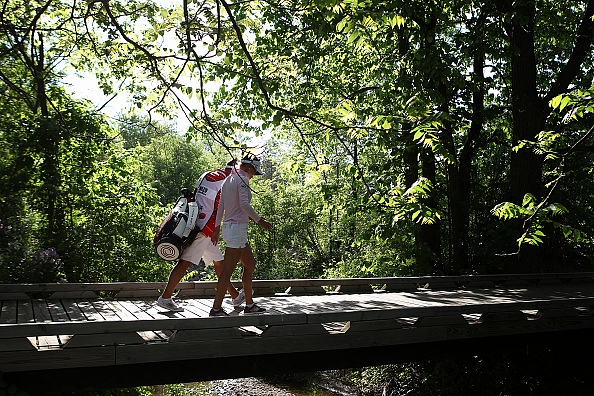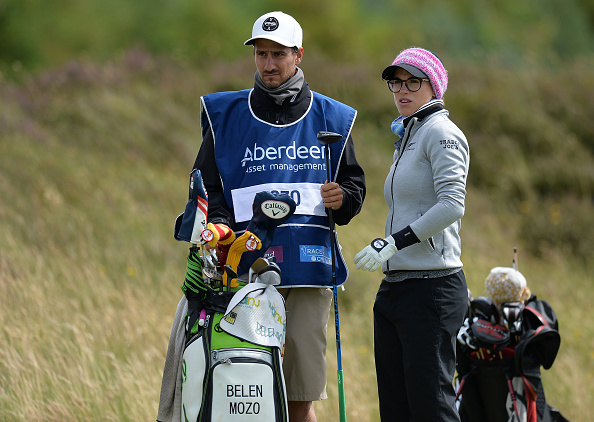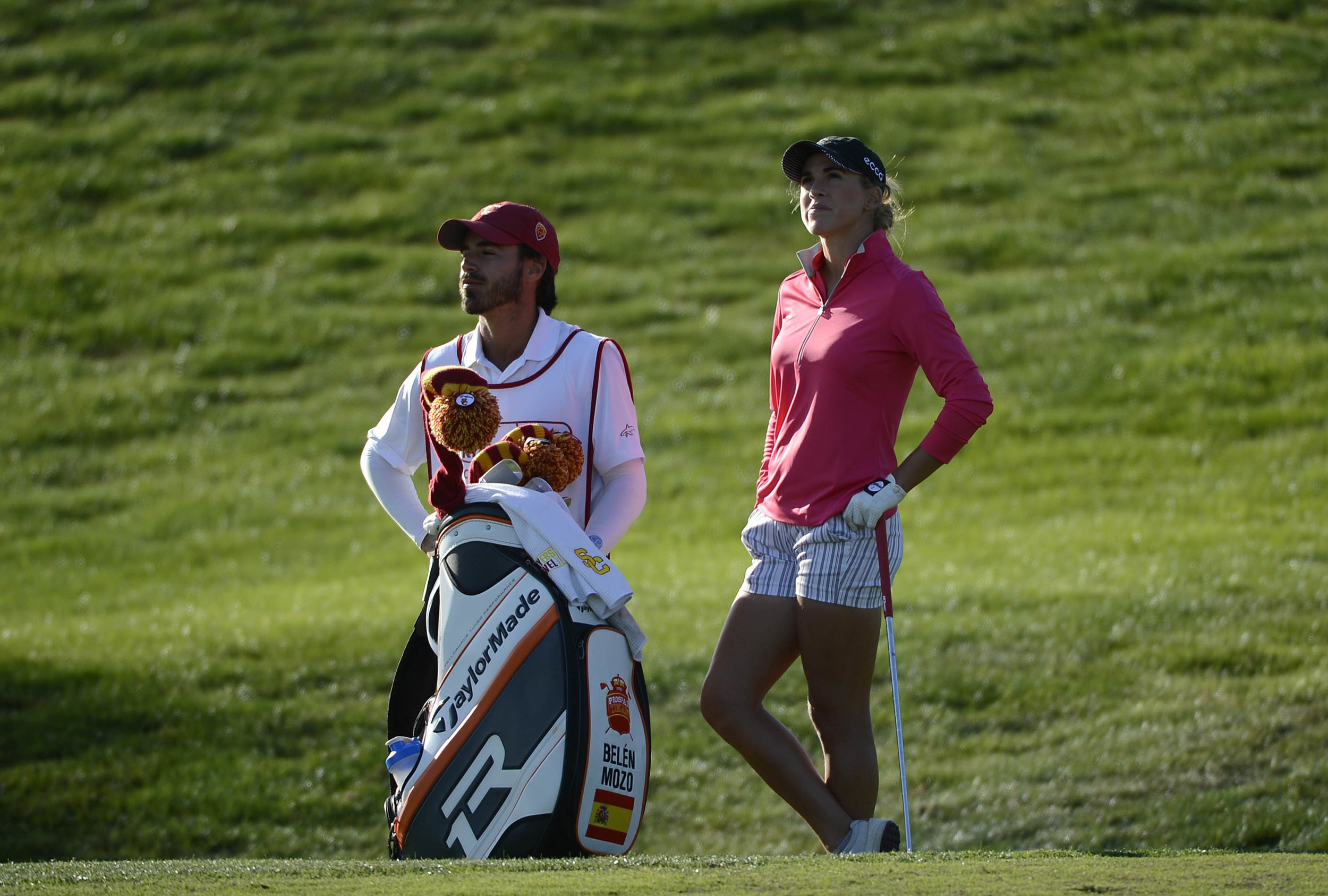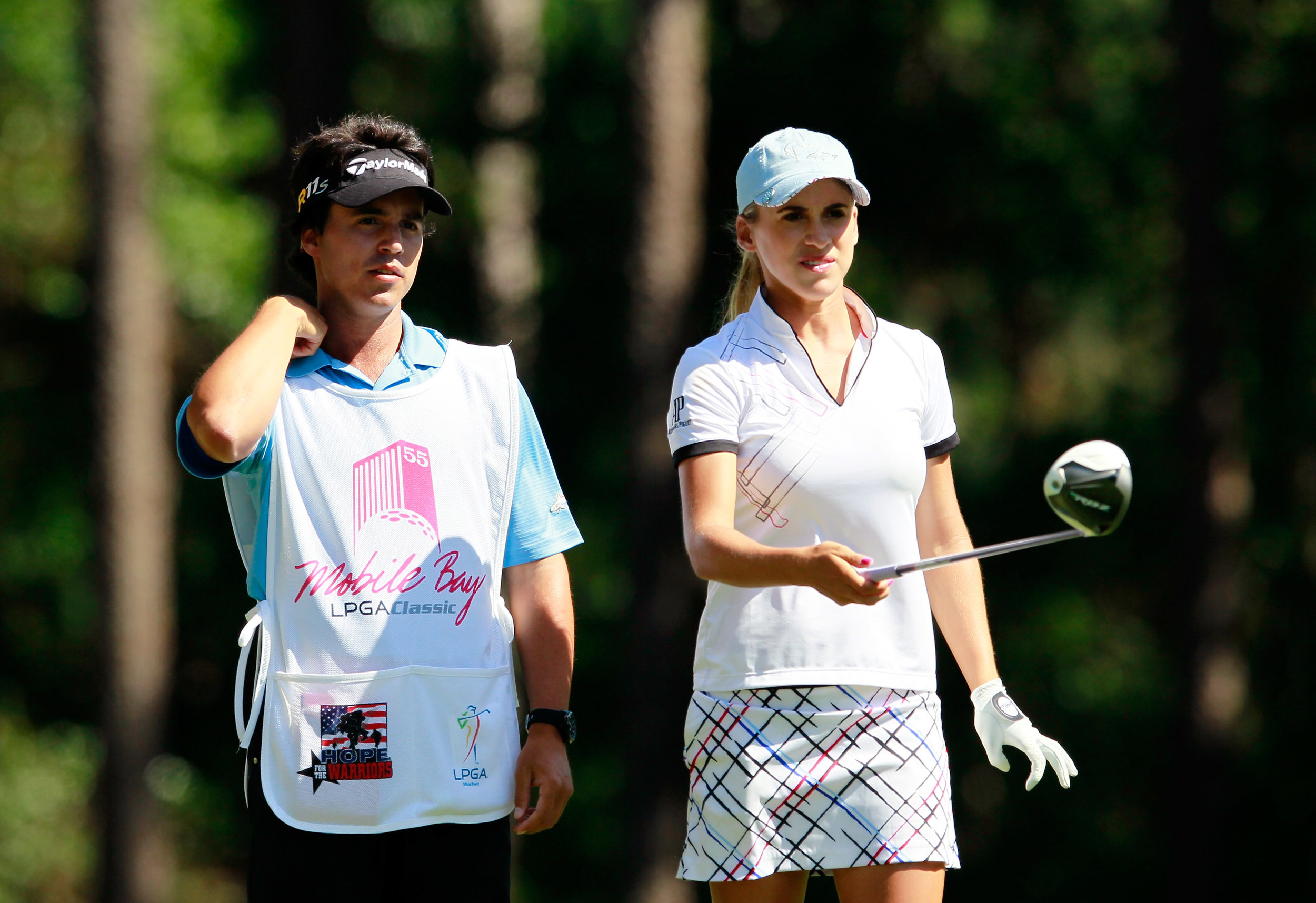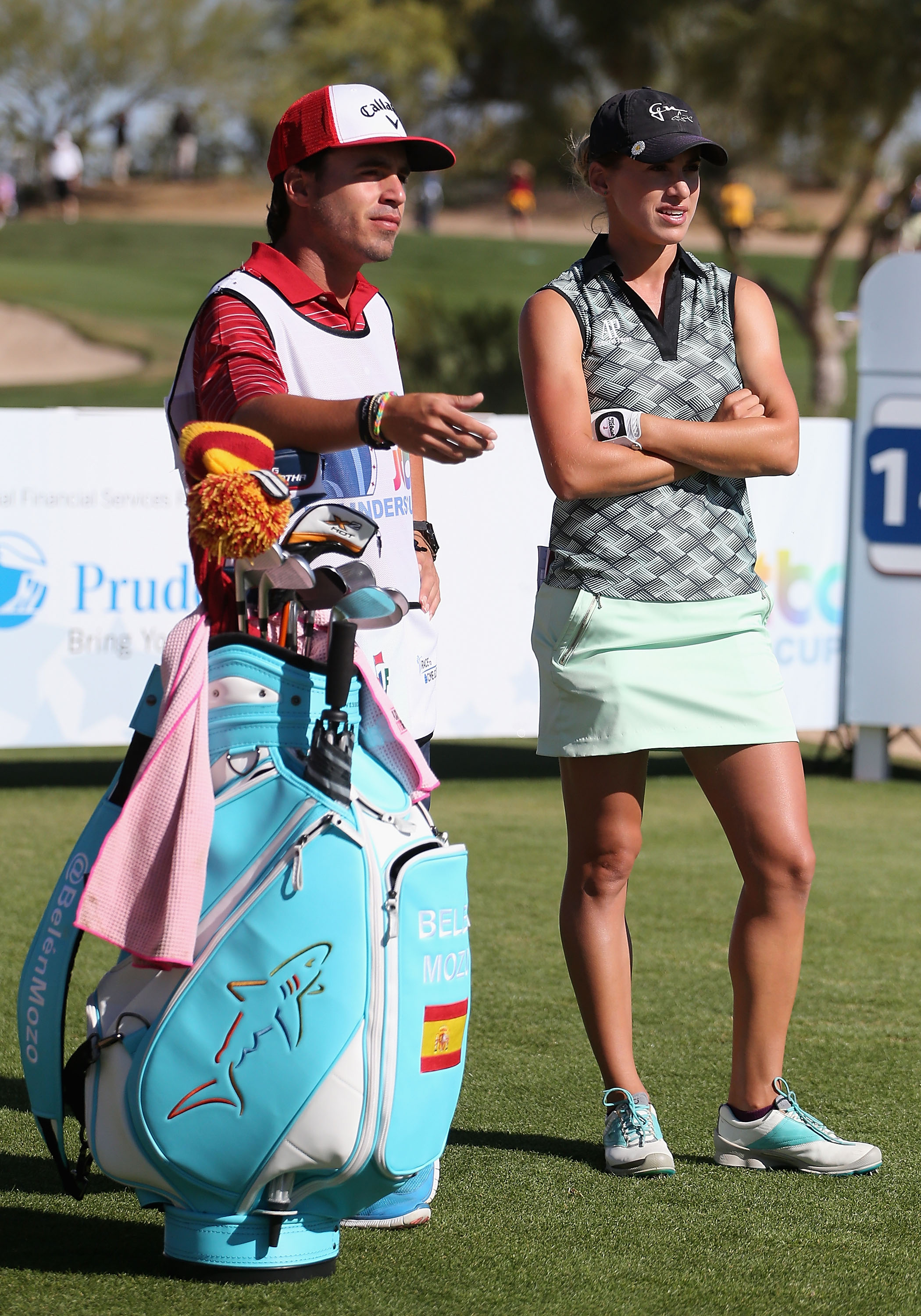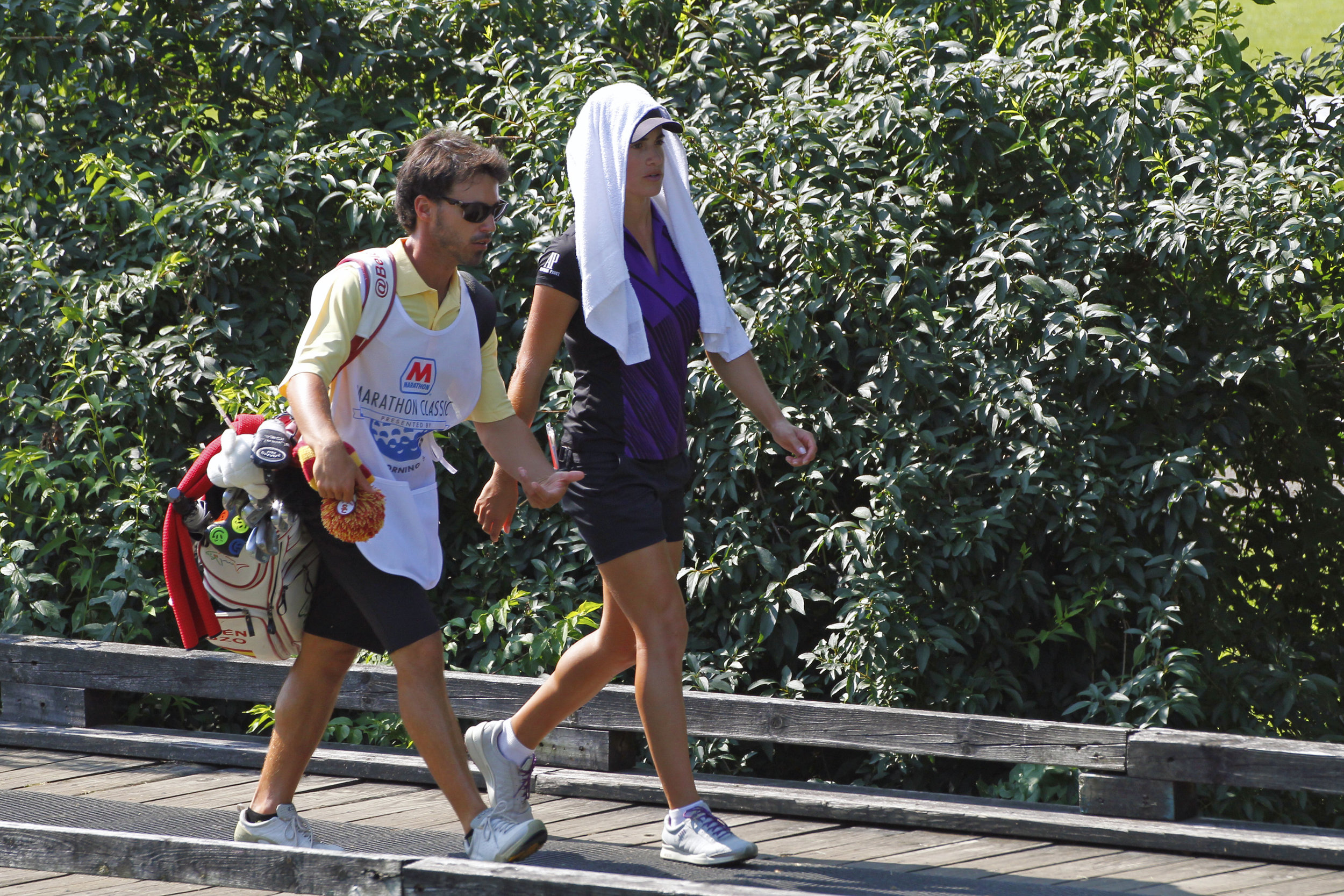CADDIES ARE NOT JUST LOOPERS
People think being a caddy is an easy job, and that everyone can loop for a professional golfer at a tour event. But I beg to differ. I am here to state that being a professional caddy endeavors more than just getting the yardages to the pin and figuring out the direction of the wind. The job of a caddy is more strenuous than that, without even mentioning the life on the road they also must endure (that sounded a little dramatic, I bet they enjoy their time on the road!).
A very curious fact about my previous caddies is that all of them, except my first one, spoke Spanish. My reason? Easy. First we need to be aware that out of my 7 years on tour, my brother caddied for me for almost 5 years. He not only knows my game by heart, but is also a professional golfer. Doesn't compete, but knows a heck lot about golf. So after him, the other 3 spoke Spanish, yes. The main reason is because my caddies spend more time with me than my family and boyfriend do. So, they obviously get to see my most vulnerable moments - on and off the course. In those moments of intense joy, vulnerability, fright, doubt, happiness; I want to be as close to my natural self I could be. I want to be on autopilot — think in Spanish and speak in Spanish. Communication is key out there, and I believe culture does play a big role in a good communication.
Carlos Lopez (Spain) and I playing in Dundonald Links in Scotland this year for the Scottish Open.
My brother Jesus and I in some of our 5 years adventure together!
Belen with former caddie Leo Burgos (Argentina) last year in Manulife Championship, Waterloo Canada.
Not to exaggerate, but a good caddy does all the job out there. We just hit the ball (phew). I like my caddies to take over the majority of the responsibilities out there— with that being said, I like them to feel empowered in the decision making. It is against my religion to blame a bad yardage or club decision, because under the same rule, I should apologize for my bad shots as well. And even though I still do, I firmly believe we are a team out there. He wants me to do as good as I want myself, so he will never make a mistake on purpose. Getting mad at them or putting them under the bus will only make things worse. Next time, they can easily choke on an important decision making. I always put the same example, I imagine myself in the middle of a classroom trying to solve a mathematical problem (I have to put that example because is one of the only things that will get me nervous and make me choke). The thought of having the professor yell at me because I was mistaken on a subtraction will freak me out so much that I will freeze for the next calculation. I would be hesitant. My main concern is not for them to feel confident in adding or subtracting yardages, I am talking about them feeling certain to persuade a player to hit a lesser club when she thinks the opposite. That takes courage, and having a good relationship is key to believe in one another.
My caddy knows my game as if he was the one playing. When he walks the course, he looks at landing zones off the tee as if it was me. He knows right away if certain tee boxes will make me more uncomfortable than others; he checks targets zones on the green; learns the areas where not to miss and why; learns how firm the course could get depending of weather, etc. And right away develops our game strategy. Most of the time he doesn't even tell me the distance, he just hands me the club right away. I dig that.
The one thing that my caddy doesn't help me with are the breaks on the green. He definitely could because he is good at it, but we chose not to. We have tried many different ways to see how we could benefit more. I am not a linear putter so having him select the point where I want to roll my ball created too much stress and anxiety on me. So at the end we came to the conclusion that I actually see the breaks better on my own.
Long story short, caddies are not just loopers; they are superheroes in disguise.
Mucha gente se cree que ser un caddy profesional es un trabajo fácil, y que todo el mundo puede cargar una bolsa de golf en un torneo profesional. Pero yo hoy quiero demostrar que ser caddy profesional es un trabajo complejo, y que requiere más que saber sumar o restar distancias e identificar la dirección del viento.
Un dato muy curioso acerca de mis caddies es que todos excepto el primero, hablan español. La razón? Primero, tenemos que dejar claro que de mis 7 años en el tour, mi hermano Jesús, me hizo de caddy casi 5 años. Él no solo se sabía mi juego de memoria, si no que también fue jugador profesional de golf (nunca compitió mucho). La razón por la que prefiero que mis caddies hablen español es porque ellos comparten conmigo mas tiempo que mi propia familia o novio. Ellos me ven y comparten mis momentos más vulnerables dentro y fuera de un campo de golf. En esos momentos de inseguridad, felicidad, furia, tristeza y/o alegrías, prefiero estar vinculada a mis raíces. Me gusta ser lo mas natural y trabajar en modo automático en la manera de expresarme e interactuar. Me parece muy importante. Y eso lo consigo hablando y relacionandome en español.
Sin ser exagerada, un buen caddy hace casi todo el trabajo arduo ahí fuera. Nosotros solamente le pegamos a la bola (solamente!). A mi me gusta darle a mis caddies una voz en la relación. Me gusta que se sientan responsables de tomar decisiones importantes. Que se sientan importantes a la hora de dar indicaciones y o recomendaciones. Al fin y al cabo somos un equipo, y a él le viene igual de bien que yo juegue bien como a mí.
El hacer sentir a mi caddy importante e indispensable en su trabajo hace que ellos tengan más seguridad a la hora de tomar decisiones. En mi forma de trabajo con un caddy, no existe el enfadarse por errores cometidos. Por la misma regla de tres, yo tendría que pedirle perdón cada vez que pego un mal golpe. Pienso que enfadarse cuando comenten un error conlleva a errores más graves en el futuro. Yo me pongo siempre el mismo ejemplo con las matemáticas; si un profesor me saca enfrente de la clase a solucionar un problema y me equivoco en un cálculo y el profesor llama la atención. Para la próxima voy a estar muy insegura y con miedo. Y eso es no lo que no quiero que pase con mis caddies. Las cosas se debes de hablar de una manera constructiva, pero no emocional. No me refiero a una simple suma o resta. Me refiero a el momento en el que el caddy, interrumpe mi rutina para aconsejarme que juegue un palo mas. O que me convencía de pegar madera 3 en vez de Drivers en esta salida, o me pegue un grito cuando me empiezo a volver negativa o ansiosa. Eso requiere coraje, y para ello el caddy se tiene que sentir cómodo y con poder para asumir el cargo.
Mi caddy se conoce mi juego como si el estuviera jugando. Cuando va a caminar los campos de golf para medirlos, visualiza las salidas y los tiros a green sabiendo mis comodidades y mis debilidades. Cuando ellos caminan los campos, se fijan en el aspecto visual desde un tee de salida, las zonas de bote en el green con los hierros. Lo duro que se puede poner el campo de golf para saber si desde el tee nos cruzamos la calle. Estar receptivos en los greenes y darse cuenta de las posiciones de banderas y donde saber dejar la bola. Y ahi mismo, desarrollan un estrategia de juego que luego comentan conmigo.
Lo único que mi caddy no me ayuda es con las caídas en los greenes. Hemos trabajado mucho en rutinas pre golpe para identificar como me siento mas cómoda, y al final llegamos a la conclusión que yo manejo mejor la presión y ansiedad cuando leo mis propias caídas y tomo mis propias decisiones en los greens. Igualmente siempre le pregunto si tengo dudas.
